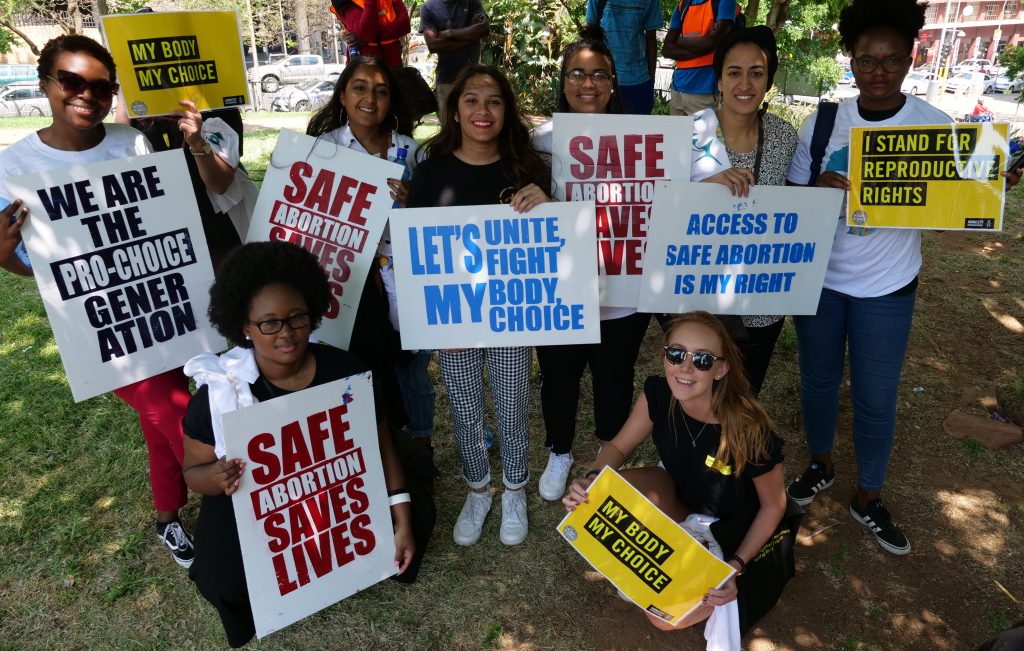By Jennifer Wells
2018 has been a year in which feminist narratives have dominated mainstream media, the red carpet and streets of major cities around the world, looking to slogans of #MeToo and #TimesUp as calls to action and advocacy. The year saw an increase in awareness around harassment, assault, coercive and abusive behaviour against women and sparked a new cultural awakening around the world with women driving the resistance against misogyny, patriarchy and sexism. Riding on the wave of the #MeToo movement, women are reclaiming their power and exposing the daily lived experiences women face at the hands of in-built patriarchy and sexism. However, whilst 2018 may be remembered for its women-led movements or the record number of women elected to congress in America, South Africa has held on tightly to its reputation of having one of the highest rates of gender-based violence (GBV) worldwide.
Despite having the entire month of August, a public holiday and the 16 Days campaign dedicated to women, South Africa continues to display some of the most pervasive and extreme levels of GBV worldwide. It pervades political, economic and social structures of society, cuts across all divides and impacts all aspects of life.
On the 1 August 2018, women and gender non-conforming people, in all their diversity, marched in protest against GBV under the banner of #TotalShutdown. The march culminated in the delivery of a memorandum to the state, detailing 24 demands to ensure an end to GBV in South Africa. In response, President Cyril Ramaphosa called for a National Summit against Gender-Based Violence and Femicide that was held from the 1st -2nd November 2018 in Johannesburg. Speaking at the summit, the President stated that “gender-based violence is an affront on our shared humanity as South Africans. The unrelenting murder of women in our country, for no reason other than that they are women is corroding our nation.”
Femicide – to which the President was referring – is the intentional killing of females because they are females. Femicide is five times higher in South Africa than the global average. 2 930 women were murdered in 2017/2018.
This statistic was brought to life at the GBV and Femicide Summit through a young woman’s account of her mother’s brutal rape and murder at the hands of her adopted son, the young woman’s adopted brother. Similar stories of abuse and violence were shared by female survivors at the summit, highlighting the shocking torment and anguish women, girls and gender non-conforming people face daily in this country. The personal accounts bear testimony to the statistics quoted by Ramaphosa, that an estimated 138 out of 100 000 women are raped every year in South Africa (the highest in the world) and that in 2017/18, 40 035 cases of rape were reported to the South African Police Service. Intimate partner violence (IPV) is especially bad in South Africa with between 25 and 40% of South African women experiencing sexual and/or physical IPV in their lifetime. One study across four Southern African countries, including South Africa, found that 31.1% of women reported having experienced forced sex.
These statistics don’t live just on paper. They live in the realities of so many in South Africa, including myself. Speaking at the summit, President Ramaphosa said that “the proposals that have been put forward are going to be acted upon” and that he is “relooking at how the budget and structure will deal with GBV.” He continued to explain that he is committed to working with civil society to produce an action plan in 2019, and will establish a central national coordinating structure for GBV. He further stated that funds should be made available to improve the Thuthuzela Care Centres which are found in public hospitals in communities and provide a holistic response to survivors of GBV; and ensure that their lay counsellors are adequately trained to best deal with the needs of the victims. Ramaphosa made a call to all South Africans to become champions of the fight against GBV and to see this as the beginning of the journey to resolving this problem. Seemingly sincere in his words, Ramaphosa ended his speech with a pledge to all that “government is here and listening and will continue to respond to your demands”.
Well, we’ve heard you, Mr President. We too are here and listening. We watched as you made your calls and pledges, and as a young woman living in South Africa, I’m listening even harder. As we enter the 16 Days Campaign Against Gender-Based Violence, beginning today – 25 November 2018 (International Day for the Elimination of Violence Against Women) running through to 10 December (International Human Rights Day) – we are ready to see action.
How do we move beyond paying lip service to this scourge, through special days and months, to realising the change we want to see in our world, Mr President? We want to see the action plan and we want to see the allocation of requisite budget and human resources, because only then will we know that you are truly sincere. 16 Days of Activism is a start, but by no means is it the sole solution. We’re ready Mr President. Are you?
Jennifer Wells works as part of the justice and accountability team at Amnesty International South Africa. Follow Amnesty International South Africa on Twitter at @AmnestySAfrica.


